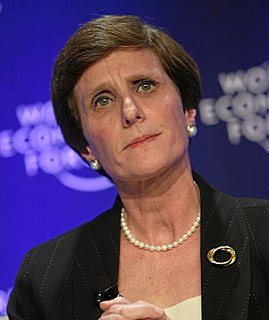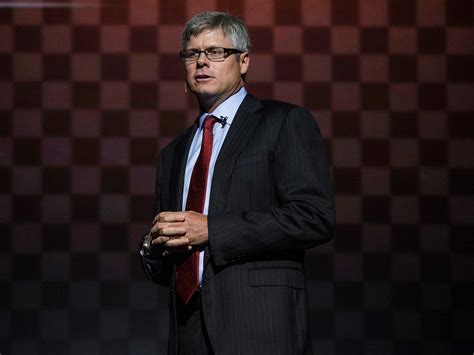A Quote by Irene Rosenfeld
Even in developing markets, we're seeing the growth of digital communication is proceeding at a very rapid pace.
Quote Topics
Related Quotes
As somebody who's kind of a technophile, I'm interested in how traditional and digital publishing connect. Maybe ten years ago they were seen as antagonists, but now they complement each other. There's data that shows digital sales actually drive print sales. And even the ways in which pictures and words, text and image, interact - we're seeing these books that are very hard to categorize. All of that is very exciting to me.
A combination of very rapid population growth over the last 50 years and reckless economic growth during the same time has stored up massive problems for societies the world over. No nation is immune. The scientific evidence tells us all we need to know: carry on with business-as-usual growth-at-all-costs, and we're stuffed
For equity markets, the combination of low interest rates, strong economic growth and low inflation has proved very beneficial, with global share markets rising solidly in each of the past three years. This has been underpinned by strong growth in profits so that, notwithstanding the rise in share prices, P/E ratios have been declining on average.


































